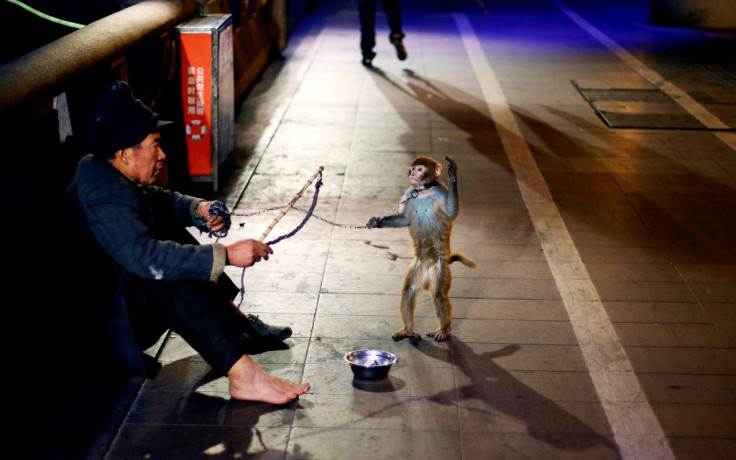China's Rich and Poor Gap Surpasses US

The income gap between China's haves and have-nots has surpassed that of the US and is among the widest in the world, according to a report.
A common gauge of income inequality almost doubled in China between 1980 and 2010 and now highlights a "severe" disparity, according to researchers at the University of Michigan.
The widening gap between the rich and the poor could fuel social instability in the world's most populous nation at a time when economic growth has slowed.
Social unrest could turn the clock back on Beijing's plan to reform the world's second-largest economy -- the Chinese government engineered the growth slowdown to below 8% to deal with credit risks, and pollution that has stifled the nation's biggest cities.
Gini Coefficient
Using data from six surveys conducted by five universities in China, the University of Michigan researchers worked out a measure of income inequality, the Gini coefficient, and compared it to previous estimates.
In 2010, the Gini coefficient for family income in China was about 0.55 compared with 0.45 in the US. In 1980, the gauge in China was 0.30.
A coefficient of 0.5 or higher indicates a severe gap between the rich and poor, according to the report, which also said Beijing stopped publishing the data in 2000 when the gauge hit 0.41.
A reading of zero suggests all income is evenly distributed and 1 represents complete concentration.
Beijing's policies that favour urban over rural residents and coastal over inland regions had contributed to the growing divide between the rich and the poor in China, the report found.
The University of Michigan study will be published online this week in the Proceedings of the National Academy of Sciences of the United States of America, Bloomberg reported.
"Since the 1980s, the rise of income inequality has been far more dramatic in China than in the US," the researchers wrote.
"Chinese recognise income inequality as a serious social problem; on the other hand, they seem to have high tolerance for income inequality," said co-author Yu Xie, a sociology professor and a researcher with the university's Institute for Social Research.
"They don't like it, but they seem to accept it as a fact of life. Something they have to pay for fast economic growth," Yu told Bloomberg.
Labour Unrest
Chinese shoe supplier Yue Yuen Industrial, which manufactures shoes for Adidas, Nike and Converse, has said that a labour dispute, which began earlier in the month with thousands of workers walking off their jobs, will cost it nearly $60m initially.
The Yue Yuen unrest is the latest occurrence of industrial activism that has emerged just as growth in the world's biggest developing economy has slowed.
Last week, President Xi Jinping warned against emerging threats to social stability and national security, after 28 people were killed and 113 wounded in a mass stabbing at one of China's busiest railway stations in March -- the Kunming train station in China's southwestern Yunnan province.
Growing Millionaires
China is adding more millionaires than any other emerging economy, according to a 2013 Asia-Pacific Wealth Report by Capgemini and RBC Wealth Management.
The report pegged their number at 643,000, up 14.3% on 2012.
Meanwhile, the official estimate for the income gap in 2013 was about the same as in 2012, with the statistics bureau putting out a Gini coefficient of 0.473 for 2013, after 0.474 the preceding year. The UN has said that a level above 0.4 is a forecaster of social unrest.
© Copyright IBTimes 2025. All rights reserved.






















